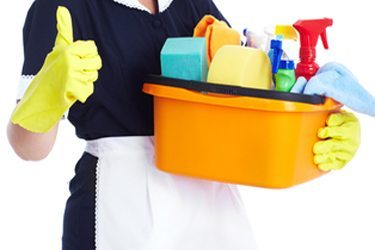Hawaii Passes Domestic Workers’ Legislation, Mirrors New York’s in Substance
Though substantively similar, the two states' laws arrived at and passed their state legislatures in vastly different ways.

Correction: A version of this article incorrectly listed the name of Oregon’s bill as HB 2627. It is HB 2672. We regret the error.
On April 30, just in time for May Day, Hawaii’s state house and senate passed a domestic workers’ bill of rights. Hawaii Gov. Neil Abercrombie is highly likely to sign the legislation, evidenced by Hawaii First Lady Nancie Caraway’s letter of support for the legislation in senate testimony. Hawaii is thus poised to enact the nation’s second domestic workers’ bill of rights, establishing wage protections, overtime, rest breaks, and protection from abuse and harassment. The first such bill passed in New York in 2010.
But New York and Hawaii’s laws were passed in vastly different ways. New York’s law was the product of nearly a decade of grassroots organizing, movement building, and lobbying by domestic workers, while Hawaii’s law was pushed through in just a few years, driven by state legislators who are interested in supporting the national movement for domestic workers’ rights.
“Our feeling is that if six or seven states pass domestic workers’ legislation like this, we can be successful at the federal level in implementing reforms to the National Labor Relations Act and other legislation that excludes domestic workers,” said state Rep. Roy Takumi (D-Pearl City), who sponsored Hawaii’s legislation (S.B 535) and has been a key champion of domestic workers’ rights in the state.
Several other states have domestic workers’ bills pending; among them are California, where domestic workers’ legislation has twice been vetoed, Massachusetts, and Illinois. Meanwhile, on Tuesday, Oregon’s House of Representatives passed HB 2672, which provides overtime protections and guaranteed sleep for nannies and housekeepers; this bill now heads to the Oregon state senate.
Hawaii’s legislation will add domestic workers—mostly immigrant women who work as nannies, housekeepers, and caregivers in private homes—to the state’s wage and hour laws and establish minimum working hours and protection from abuse and harassment on the job. A 2012 survey of more than 2,000 domestic workers in 14 metropolitan areas revealed that 67 percent earn less than minimum wage and 25 percent had not had at least five hours of uninterrupted sleep in the prior week. The survey found that abuse of domestic workers is rampant, but most workers surveyed were too afraid to speak up about it.
Takumi decided to work on a Hawaii domestic workers’ bill of rights four years ago, after hearing National Domestic Workers’ Alliance director Ai-jen Poo speak at a Progressive States Network conference about how domestic workers have historically been excluded from all major labor protections, leaving them vulnerable to wage theft and exploitation. Takumi first introduced the legislation in 2011, but it failed to pass the state’s labor and economic development committee.
This year, Hawaii’s domestic workers’ legislation emerged from the Hawaii women’s legislative caucus, a bipartisan group that focuses on women’s issues. “This bill resonated because of the women’s caucus’ long history at opposing all forms of discrimination, fighting for protections for women in the workplace, and the overall commitment to civil rights,” state Rep. Della Au Belatti (D-Makiki-
The saga of New York’s law is far different. In New York, a state teeming with immigrant and low-wage workers and over 200,000 domestic workers, activists began organizing as early as 2003, first passing city-level legislation, then developing a complex statewide strategy. Busloads of domestic workers, union organizers, and allies traveled to the state’s capitol dozens of times to meet with legislators. The National Domestic Workers’ Alliance spent years building deep alliances with the Jewish community, mainstream labor groups, and other community partners.
Substantively, however, New York and Hawaii’s laws are very similar and are primarily geared toward wage protections, overtime days of rest, weekly work hour limits, and protection from harassment and abuse on the job.
It’s important to note that neither New York’s nor Hawaii’s law protects domestic workers from discrimination in hiring and firing. Takumi originally authored the bill to protect domestic workers from firing based on gender, race, religion, sexual orientation, and other protected classifications, but toward the end of hearings on the bill, religious groups in the state, including the Church State Council and the North American Religious Liberty Association, expressed concern that employers would not be allowed to fire people who work in their home but espouse different religious views or attempt to indoctrinate children with their religious views.
“From my vantage point, domestic workers should be protected from firing discrimination, but we still currently don’t treat homes like every other place of employment,” Takumi said. “We’re taking small steps here. We are focused on wage and hour protections and eventually we can get full protection for domestic workers from firing.”
New York’s law also does not protect domestic workers from being discriminated against in firing. While this exclusion is deeply problematic, the most pressing needs expressed by domestic workers are related to pay, rest, and protection from abuse—thus domestic workers’ legislation to date primarily reflects those needs. “It’s unfortunate that domestic workers still aren’t protected from discrimination in firing,” Ai-jen Poo said via email. “It’s definitely an area to work on for the future.”
